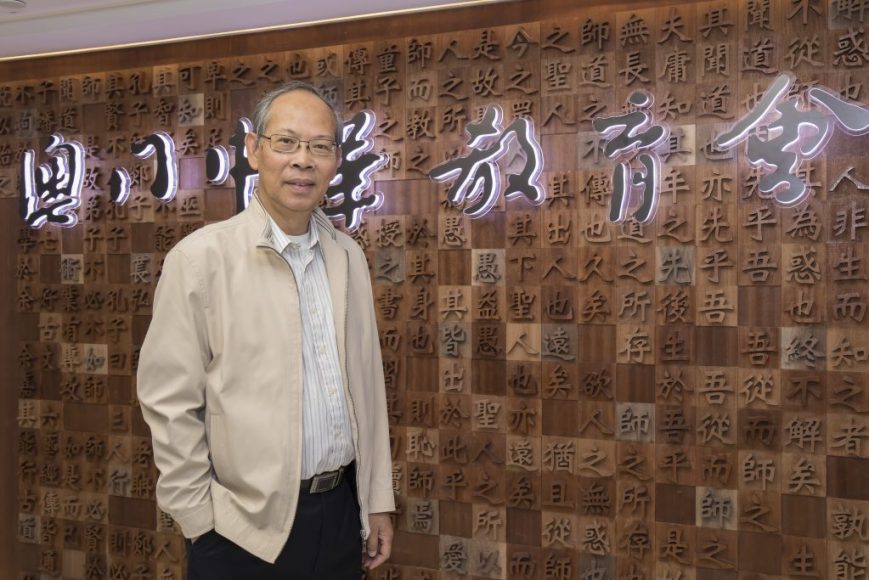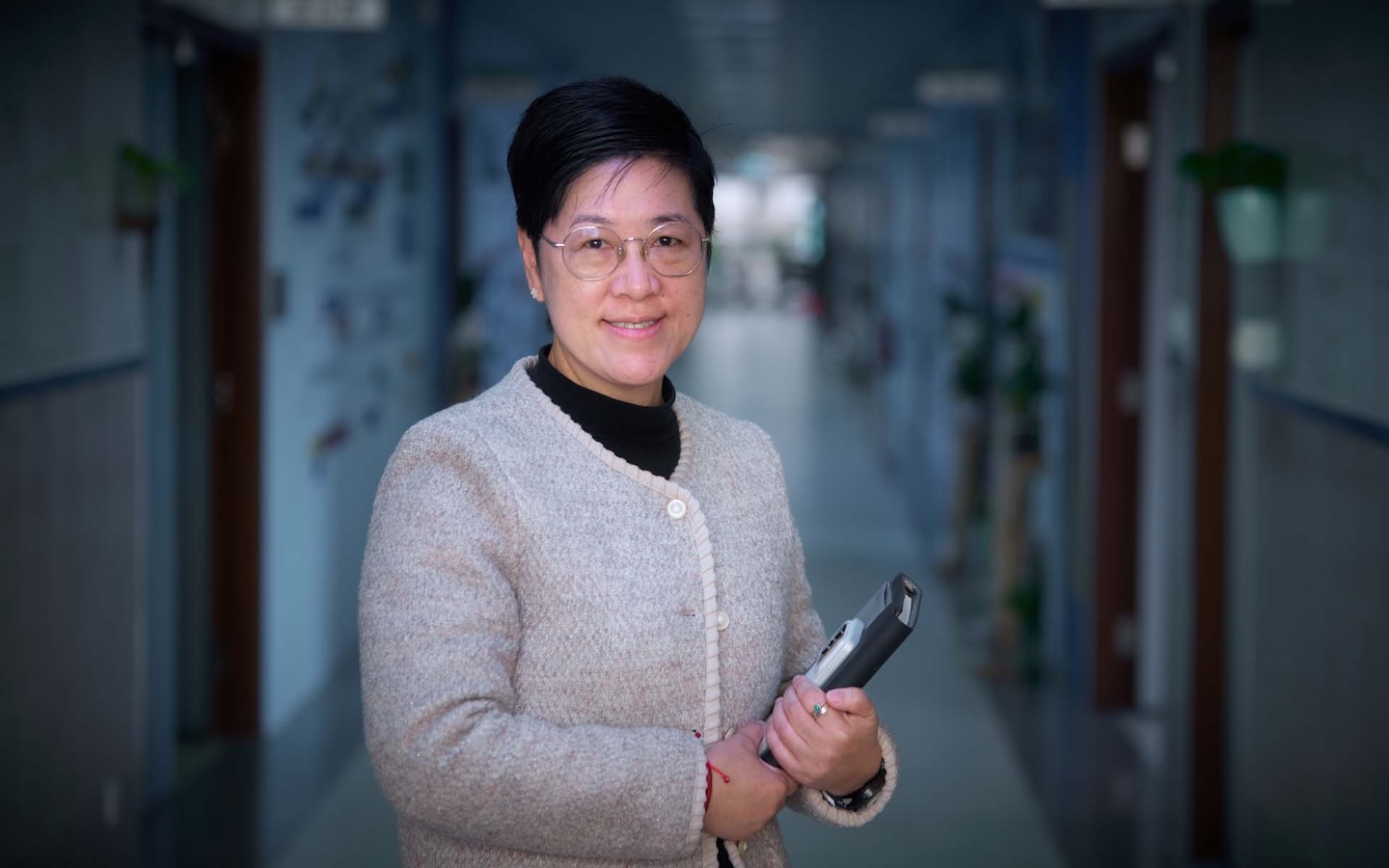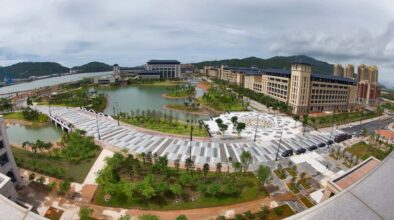Teacher devotes life to improving education in Macao
When Lei Pui Lam went to school, his parents had to scrimp and save to pay fees for him and his three brothers and sisters. When he graduated from secondary school, Macao had no universities, and with the Cultural Revolution shuttering schools in the mainland and no money to go overseas, Lei went straight into teaching. Today, children in Macao enjoy 15 years of free education, from nursery to secondary school. “If a young person now wants to enter university, he or she can,” says Lei. “They have several universities in the city, and the option to choose one in the mainland, Hong Kong, Taiwan or overseas.”
Lei, 69, has devoted his life to improving education in Macao. He currently serves as deputy chairman of the Macao Chinese Educators Association (MCEA); he was director for 40 years. In January 2017, he received the Golden Lotus medal for his outstanding service to the city.
Founded in 1920, the MCEA is one of the oldest non‑governmental organisations in Macao. They were inspired by the example of Cai Yuanpei, then chancellor of Beijing University and leader of the Chinese Educators Association, to set up their own branch in the city. Teachers all over the country did the same, establishing local branches with the aim of popularising and modernising education.
“The Portuguese colonial government only provided schools for Portuguese and Macanese students. The only option for Chinese students were schools set up and managed by private organisations such as churches, civic associations, trade unions, and individuals,” explains Lei. “Education should be the responsibility of the government. But it required heavy spending, so the government did not do it. Ordinary Chinese people were forced to bear the double burden of paying taxes and paying school fees.”
The lack of government involvement has meant that, for nearly a century, more than 90 per cent of Macao’s children have been educated in private schools, one of the highest rates in the world.
Catholic and Protestant missionary schools account for about half of the total, with the remaining schools established by trade unions, civic associations, and other entities. While they worked to keep their fees low and provide scholarships, covering the basic costs of running a school meant fees were still too high for some, leaving the children most in need with no access to education at all.
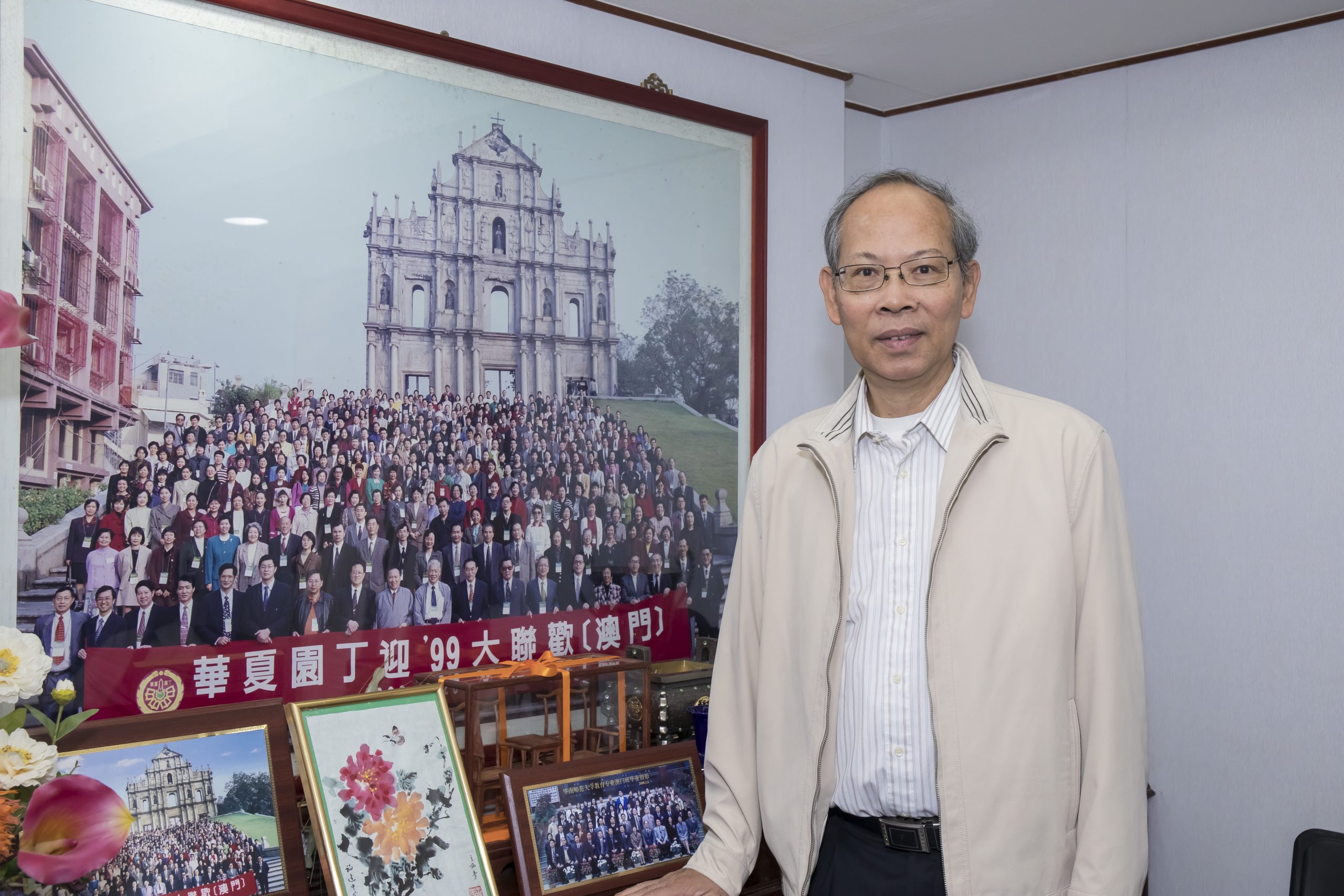
Struggle for education
Lei was born in Macao in 1948, the eldest of four children. His father, who had not graduated from primary school, sold clothes in a department store; his mother was a full‑time housewife who had completed two years at secondary school. Lei’s father supported the whole family on his salary.
Determined that their children would have the education they did not, Lei’s parents budgeted meticulously to pay the school fees, and Lei worked in his spare time to earn extra money. Their combined efforts paid off; all four children graduated from secondary school.
Lei attended a primary school established by the trade unions. For secondary school, he went to Haojiang, a pro‑Beijing institution. His graduation in 1966 coincided with the rise of the Cultural Revolution, which closed all of the universities in China. Macao had no universities at the time, and Lei’s family did not have the money needed to seek higher education elsewhere.
“Luckily, I had been chairman of the student association at Haojiang and the principal had enough confidence in me to hire me as a teacher. It was a big challenge,” says Lei. It was also the start of a lifetime dedicated to education.
Lei continued his own education by studying in the evening after work. He earned a Master’s degree at adult classes run by teachers from the Huanan Normal University of Guangzhou, and a Master in Law at classes run jointly by the University of Hong Kong and Jinan University of Guangzhou.
After 18 years at Haojiang, he left to take a position as a teacher at a night school. The change in his schedule allowed Lei to work at the MCEA and other associations during the day, and play a greater role in public life.
Decentralisation poses problems
One side effect of the fractured school system in Macao is the absence of standardisation. Each school has added subjects reflecting their political and religious interests, and there is no common exam which all students take.
“No publisher has been willing to publish material for Macao schools alone,” says Lei. “The market is too small. So all of the schools use the Hong Kong curriculum as their base, with their own additions.”
Mission schools continue to play an important role in the education of young people in Macao. They account for about half the private schools. While the principals today are rarely priests, nuns or ministers, the way schools are run remains the same; the principal must be a believer. According to the Basic Law, the government cannot interfere in the running of the schools.
Government gets involved
According to Lei, things began to change under Governor José Garcia Leandro (1974– 1979). “Before he left, he realised that the government had done badly. He decided that it should give subsidies to the private schools, with the money only to be used on education. These first payments covered 5–10 per cent of the expenses.”
Over the next two decades, the government gradually increased its investment in, and management of, education. “We in the MCEA and other associations continually pushed for this, it did not all happen in one day. We made sure the government knew that education was their basic responsibility.”
Another issue was the low pay of teachers. In the 1980s, the average teacher earned less than a street cleaner and a principal less than a textile worker. Very few people were willing to go into the profession, even those who had trained as teachers in universities abroad and come home. Many working teachers had no university degree or teaching diploma.
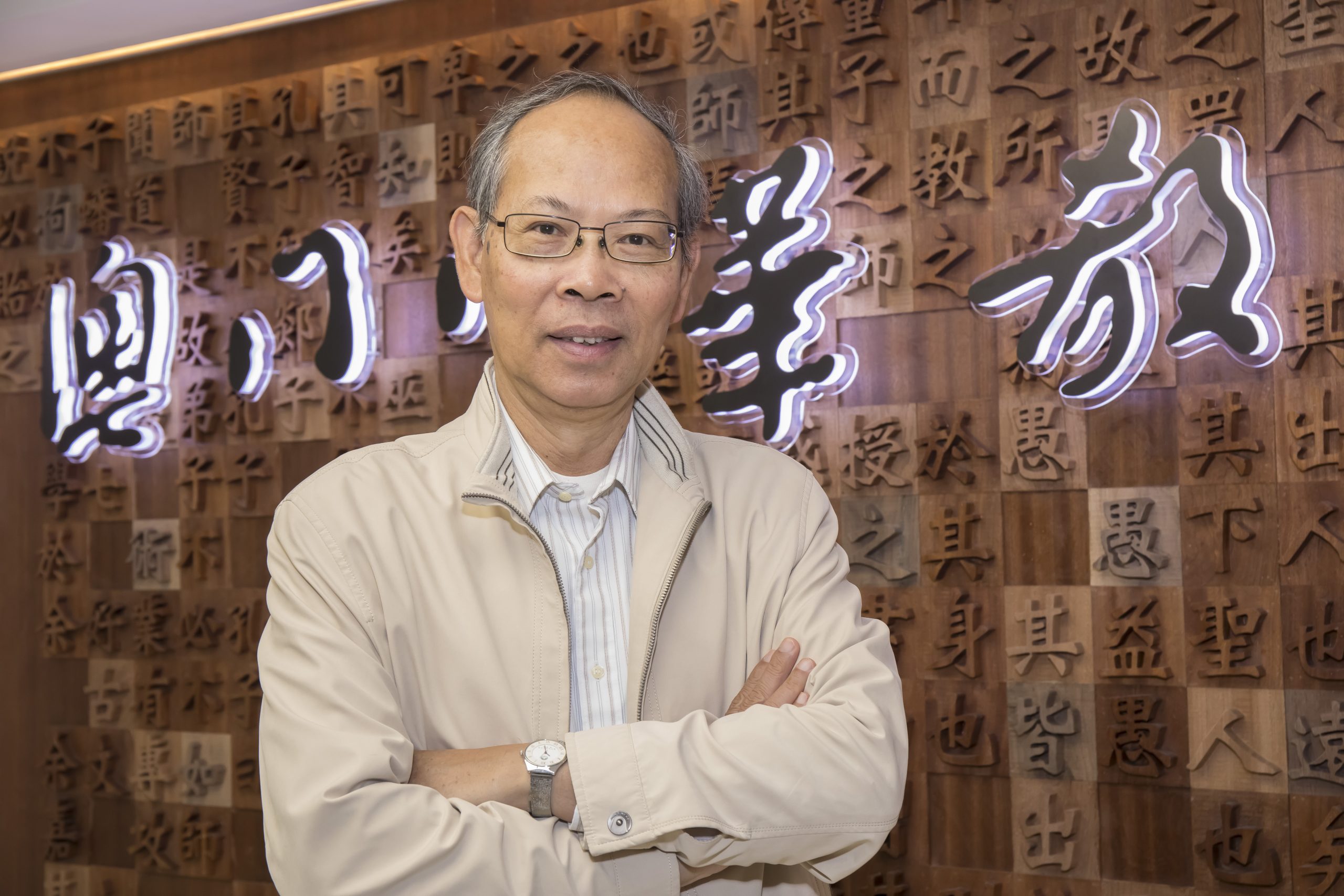
In 1985, Huanan Normal University of Guangzhou sent professors to Macao to provide a three‑year course, which enabled teachers in the city to obtain a professional diploma.
The government further increased its investment in education in the 1990s, including subsidies for schools and higher pay for teachers and staff. It introduced seven years of free education in 1995, increasing to ten years in 1997. After the handover, the government extended free education to 15 years, including the pre‑school years.
An issue of space
Despite this significant progress, Macao still faces challenges in regards to education. For Lei, the lack of space at the secondary and university levels is an important issue.
“Some schools have no blue skies because they are located in the interior of buildings and have no windows to the streets. They have no sports facilities, and have to make due by going to a park or booking space in a sports centre,” Lei explains. “Some university campuses have no place for students to live, so they must stay at home, depriving them of the experience of living with others, mixing with foreigners, and developing their social skills. This must change.”
For the University of Macau, the solution came in the form of a 1.09 square kilometre site on Hengqin, Zhuhai. The new campus there is 20 times larger than the previous one on Taipa, giving them enough room to house 10,000 students on site while still maintaining green space.
But the Hengqin campus is hardly a model for other schools facing the same issue. “There are plans for the rest of the land in Hengqin,” Lei points out. “There will be no similar sites, with a tunnel from Macao and good access.” Macao will have to find its own land to improve its schools and colleges.
One potential site is the canidrome, which is due to close at the end of 2018, freeing up a significant area of land. Another possibility is to use some of the 350 hectares of land on five sites which Macao will reclaim from the sea. “This could take over 10 years, though, with all the relevant environmental studies and approval needed from the central government. It is better to allocate existing land,” Lei says.
Work-life
Education isn’t Lei’s only interest. A look at his name card reveals he is a member, often in a high ranking position, of an astonishing 29 organisations, including the National People’s Congress.
“My record was eight meetings in a single day, from early morning to late at night. I like to meet many different kinds of people and talk about different topics. I can sing many kinds of songs, from popular ones to folk music and Hong Kong melodies.”
“I sleep six hours a night, from midnight, and I sleep very well. I don’t let worries and anxieties affect the quality of my sleep,” Lei explains. “It has been like that for decades.”
He has slowed the pace a little in recent years. He stepped down as chairman of the MCEA in 2013, taking the position of deputy chairman, and no longer teaches. “I spend more time at home and have travelled with my wife, in the mainland and Taiwan, less abroad. But my travel time is still limited.”
Recalling the Golden Lotus medal he received in January, he felt it was also for those who had worked with him. “One person can only do so much. He needs those people behind him.”
